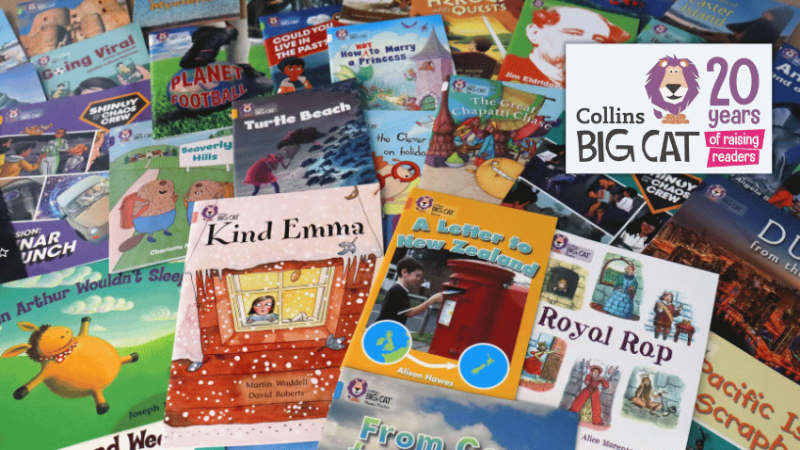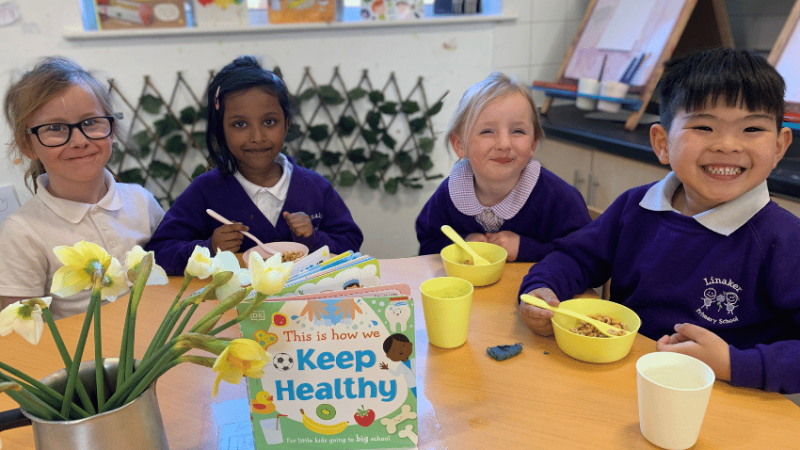Benefits of reading subtitles – How screen time can actually help

Simply turning on the television subtitles can help children learn to read just as efficiently as consuming lengthy novels…

- by Henry Warren

Did you know that turning on the subtitles while children are watching television can double the chances of them becoming proficient while learning to read? Yes, really.
Wonderfully simple, isn’t it? Ten seconds of effort for parents, a lifetime’s impact for their children. All backed up by decades of scientific research into the benefits of reading subtitles.
I’m co-founder of Turn on the Subtitles (TOTS) – the world’s largest literacy campaign. And I’ve teamed up with The Access Group to help schools spread the word to parents and boost literacy.
Research shows that 28 per cent of children – up to 45 per cent in poorer families – struggle with reading. Meanwhile, 250,000 start secondary school lacking basic English skills.
Furthermore, nearly one in five children aged five to eight in England lack access to books at home. For those who do have access, only two in five say they enjoy reading.
Reading for pleasure
We all recognise how crucial it is to instil a love of reading books. We wouldn’t want to detract from that. However, by integrating both reading books and TOTS, we can double the likelihood of children excelling in learning to read.
If a child watches just over three hours and 15 minutes of TV a day with the subtitles switched on, after a year, they’ll have read the same number of words that are in all the Harry Potter books, the Narnia saga, the Lord of the Rings trilogy, and Roald Dahl’s entire collection combined.
Of course, few would suggest that much screentime as a target.
However, many might describe the battle of encouraging their child to put down their smartphone or tablet as a losing one. So, it’s time to accept that this technology is part and parcel of our daily lives. We must meet younger generations halfway.
With almost everything available through a screen, children are familiar with using their devices to stream content. By asking them to turn on the subtitles, and explaining the benefits od reading subtitles, children can learn new words and develop their language almost subconsciously. Research carried out by The Access Group showed that 98 per cent of viewers had zero complaints about having subtitles on screen.
Benefits of reading subtitles
Backed by the likes of Jack Black, Stephen Fry, Sandi Toksvig and Lenny Henry, as well as other leading academics and influencers, the impact of TOTS has been huge.
Trending
In a small space of time, the campaign has gone from a kitchen table in Essex to the world’s largest literacy programme.
The TOTS initiative led to the launch of Sky Q’s Literacy Zone, which plays children’s favourite cartoons with subtitles. Moonbug has also launched a channel on YouTube called Moonbug Kids Literacy. To date, these platforms now have over five billion views.
Everyone working across the education sector needs to understand the benefits of reading subtitles.
TOTS was initially aiming to help a few thousand children in the UK learn to read more effectively. But with this number only increasing (currently at 400 million), the target is now to help a billion children by 2027. All we ask is that schools, parents and the media share this incredibly simple but powerful message.
Learning to read
You can download a free TOTS digital pack full of useful information to share with parents, to get them turning the subtitles on at home.
In the classroom, use videos, with subtitles on, to introduce new topics. Having the option to read the subtitles will prevent pupils from completely disengaging from complex subject material.
Finally, try to support different ways of working in school. Approximately 15 to 20 per cent of children and young people in the UK are neurodivergent. By incorporating short video clips into a lesson plan, those who may struggle to focus for a long period of time, or prefer to see what they are learning about, will thrive alongside their peers.
To find out more and download a free school resource pack visit theaccessgroup.com/tots
Henry Warren is co-founder of Turn on the Subtitles.







